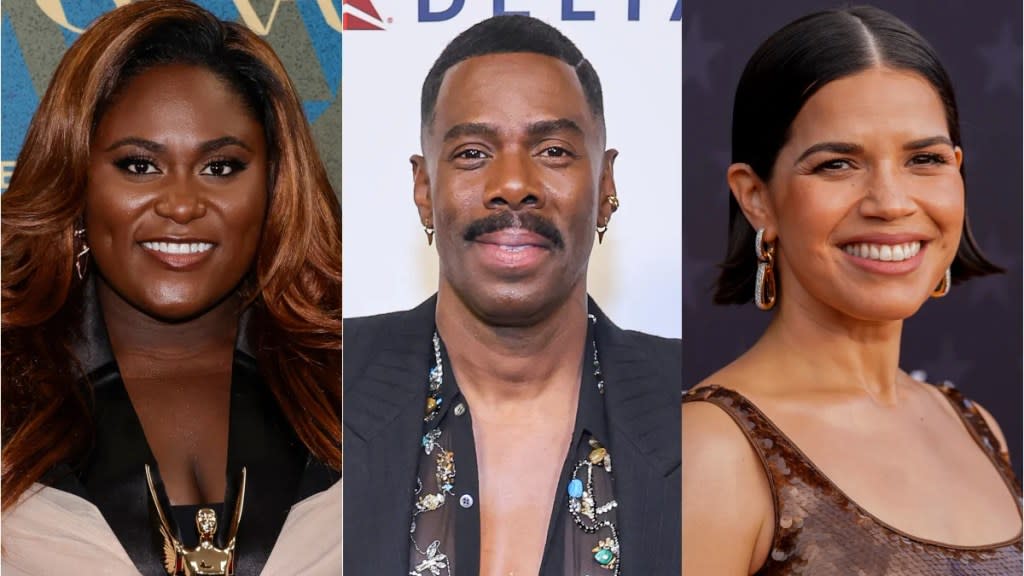Oscars Diversity Report: 2024 Nominations Show Strides in Native and Black Representation

Another year of asking how diverse the Academy Awards are. Questions were still asked, from where Margot Robbie was in the Best Actress nominations to why the Academy can still only give one woman director a nomination (sure, 2021 had 2). But, overall, this year’s Oscar nominations seemed like an improvement in representation, with women, Black actors and actresses, and LGBTQ creatives included.
The biggest celebration was in Native American representation which, like all representation in the movie, has a long and fraught history of cultural appropriation. “Killers of the Flower Moon” actress Lily Gladstone became the first Native American nominated for Best Actress. She is the fourth indigenous person to be nominated in the Best Actress category, joining Merle Oberon (who was part Maori), Maori actress Keisha Castle-Hughes and Mixtec and Trique actress Yalitza Aparicio. In the supporting actor category, indigenous Canadians Chief Dan George and Graham Greene received nominations for, respectively, “Little Big Man” in 1971 and “Dances with Wolves” in 1991.
There were also strides made in LGBTQ representation, with Colman Domingo (Best Actor nominee for “Rustin”) and Jodie Foster (Best Supporting Actress nominee for “Nyad”) becoming the first time two performers who are openly LGBTQ being nominated for playing gay characters.
Domingo, who is Afro-Latino, and Honduran-American “Barbie” actress America Ferrera also bring in some much needed Latino representation. Ferrera remains the only Latina ever nominated for a comedic Emmy; if she won the Best Supporting Actress Oscar, she would be the third Latina to do so, behind Rita Moreno and Ariana DeBose, both winning for their roles in two different “West Side Story” films.
But there remains a two-steps-forward-one-step-back mentality. Jeffrey Wright and Colman Domingo were both nominated in the Best Actor category for “American Fiction” and “Rustin,” respectively. But to look at the numbers within all four acting categories, 7 out of 20 nominees are BiPOC, the same number as last year. There were also no people of color in the directing nominations. A reminder that it’s been six years since a Black director was nominated for Best Director (Spike Lee for “BlackKklansmen”) and Black women have yet to be nominated in the category.
That being said, two Black women were able to break into the Supporting Actress race: Danielle Brooks for “The Color Purple” and Da’Vine Joy Randolph in “The Holdovers.” It’s been two years since two Black women were nominated in that same category (and DeBose won).
After last year’s increase in Asian representation with “Everything Everywhere All at Once,” in both acting and directing, there was a nearly complete absence this year in all categories (shout-out to Charles Melton who missed out on “May December”). The exception is first-time director Celine Song, who made history as the first Asian woman nominated for Best Original Screenplay, for “Past Lives.” And, as happens nearly every year, there were zero nominations for those representing the disabled community.
For the most part, women did ok this year, even if Greta Gerwig was shut out for Best Director. Justine Triet did land a directing nod for “Anatomy of a Fall,” while Samy Burch, Song, and Greta Gerwig were nominated in the writing categories.
“American Fiction” composer Laura Karpman’s is the fifth woman ever nominated for Best Original Score.
The Academy Awards will take place on March 10.
The post Oscars Diversity Report: 2024 Nominations Show Strides in Native and Black Representation appeared first on TheWrap.


